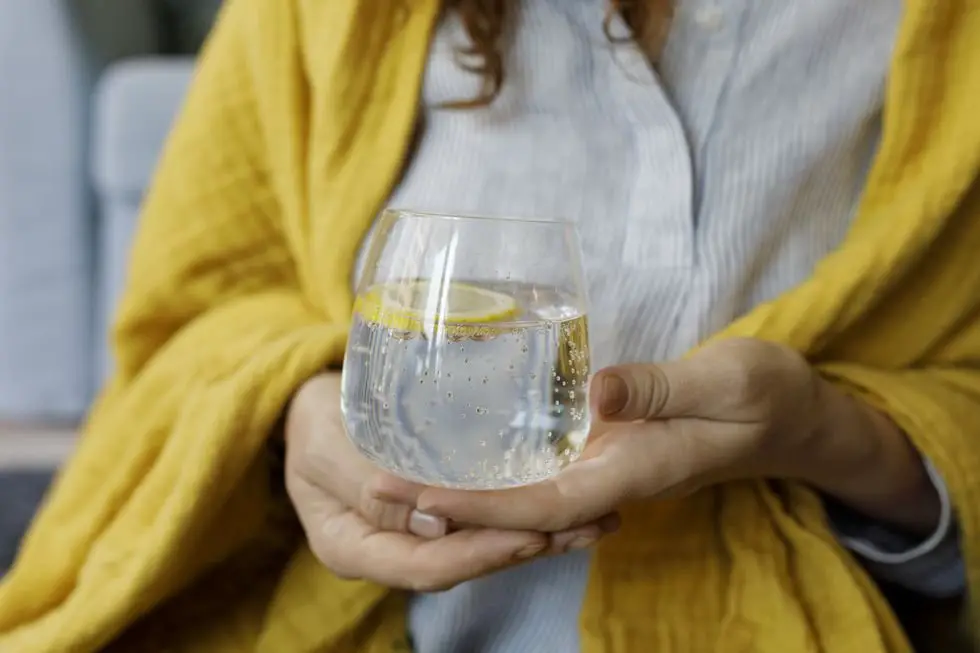Female bodies are made up of approximately 45%-65% water, with H2O playing a huge role in the health of everything from our internal organs to our bones to our skin.
Additionally, water is vital for body temperature regulation, overall cellular function, and waste removal. Since we expel water through sweating, breathing and passing urine, it’s important to stay hydrated, especially during hot weather and when exercising.
But, for something as simple as “taking a sip of water,” there are a lot of things you need to keep in mind, and not just the quantity and quality of what you’re sipping.
How many liters of water should I drink a day?
But how much water should we actually drink? Dr. Joshua Berkowitz, founder of the IVBoost Clinic, recommends drinking at least two liters, but also listening to your body.
Adults should drink at least 2 liters (8 glasses) a day, and up to 3 liters when it’s hot and our body needs to regulate temperature. But various factors such as diet, climate, exercise levels and health status can all influence how much water and fluids we need each day.
Does this include soda water?
NHS guidance states that low-fat milk and sugar-free drinks, including tea or coffee, count towards the recommended daily fluid intake. Sparkling water is included in this, which is just as hydrating as plain water, however not all variations of the sparkling alternative are created equally. BANT Registered Nutritionist Eva Humphries explains that drinking sparkling or soda water isn’t always the healthiest option.
Some sparkling natural mineral waters can be beneficial for rehydration as the minerals within them can act as electrolytes. Electrolytes are helpful minerals that are critical to fluid balance. On the other end of the spectrum, heavily carbonated water can cause gas and bloating in sensitive individuals, Eva says.
What if I don’t drink enough in one day?
Not drinking enough water leads to dehydration, which we are all familiar with, but some people may be confused as to what it actually is. Dr. Berkowitz explains that acute dehydration, due to prolonged physical activity or heat exposure, can be treated with rest and rehydration, but dehydration can have serious effects.
Dehydration can have a huge impact on our health and organs. Signs you’re dehydrated include: excessive thirst, dark, strong-colored urine, tired muscles, dizziness and lightheadedness, dry mouth, lips and eyes, urinating less than four times a day, or fatigue, she says. In extreme cases, dehydration can lead to seizures, kidney failure, or brain edema.
Is it possible to drink too much water?
With water dubbed the healthiest drink due to its purity, it’s easy to think you can never have too much of it. However, overhydration can also have dire consequences, including brain swelling.
In addition to the constant need to go to the bathroom, drinking excessive amounts of water beyond what the body needs to function properly can lead to electrolyte depletion. Over extended periods it can dilute the amount of sodium in the blood, impair kidney function and cause swelling of cells, says Dr. Berkowitz, as the kidneys can only remove 0.8 to 1 liter of water per hour. She recommends seeing your doctor if you have prolonged unquenchable thirst to make sure there isn’t an underlying condition.
Sports and exercise medicine consultant Professor Courtney Kipps points out that in some cases, overhydration can be a medical emergency.
There is a potential risk of what is called hyponatremia, which means low sodium due to excess fluids diluting sodium levels in the blood. It has been seen in athletes who drank too much during exercise and in people who took illegal drugs that caused them to be extremely thirsty, he explains.
When should I drink water?
Believe it or not, there are ways to time your water consumption to have the best effect.
Typically, I tend to advise my nutrition clients to have a glass of water first thing in the morning and to drink water regularly throughout the day. Studies indicate that drinking a little water first thing in the morning can boost brain function and improve energy. There are no specific times listed as the best to drink water, but finding a pattern that works for you is the most important thing you can do, says Eva.
For people who have a particularly difficult time drinking enough water, Eva recommends carrying a bottle of water around as a visual cue. Paying attention to the color of your urine or the absence of urination can also be a good sign to drink water.’
In addition to that, Professor Kipps points out that water is still quite possibly the healthiest alternative to other beverages. Sports drinks have similar risks to water and are no better than water aside from their carbohydrates, which can be beneficial after prolonged exercise, he says.
#liters #water #drink #day
Image Source : www.womenshealthmag.com
